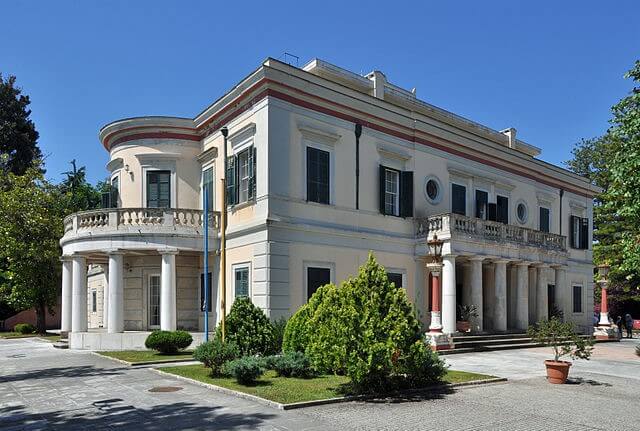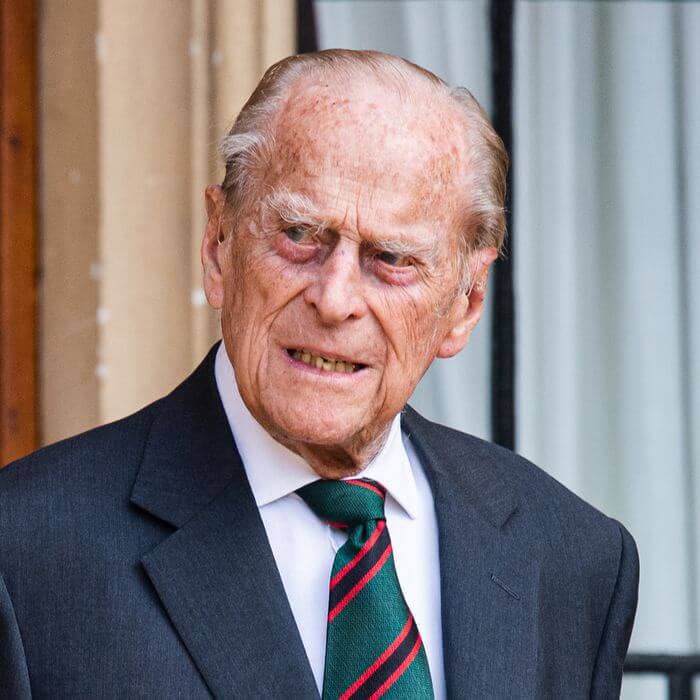Let me say, right off, this newsletter title did not start out with thoughts of COVID, cancer, heart disease, brain tumors—or the great and famous dying (stupidly) of drug overdoses.
It actually began with the death of Prince Philip. You know that, despite now being an American, I am very fond of my British heritage and upbringing. From being a kid, Phil the Greek (as we undergraduate rebels used to call him!) was as much a part of our lives as steak and kidney pudding, cricket, Charles Dickens and the BBC World News.
I never cared about the political slogan-making: he was a German, his sisters were married to Nazis, etc. etc. He was “the Big Man” to my childhood view of things. The Queen loved him and that was good enough for me! He was also smothered in medals (gongs!) and that impressed many of us.
Before he was the Duke of Edinburgh, the young Philip was Prince of Greece and Denmark, nephew of the Greek king, and born on the Greek island of Corfu in 1921, in a 19th century neoclassical villa called Mon Repos. (it was also used as the Countess Mavrodaki’s villa in BBC TV series The Durrells of Corfu).
I’ve been there and walked around it!

Mon Repos villa, Corfu
The deeper story, of course, is not just about love in a foreign land, but about that much-tarnished word “duty”. The Nazis used it, or should I say abused it? But duty was something very precious and intense to our young Queen Elizabeth and, with Philip beside her, I don’t believe she ever put a foot wrong or put herself before the nation; not once, EVER.
For 79 years they stood together, in representing Britain and The Commonwealth. It was a job… a real job being a Royal!
Sure, there were privileges. But it was arduous too. Prince Philip didn’t retire until he was 96 years old—30 years after the usual age of retirement for most people. As the longest-serving royal consort (spouse of the monarch) ever, Prince Philip undertook 22,191 official solo engagements and gave 5,493 speeches during his career.
Philip was not a British citizen, although his ancestry could be traced to multiple countries including Germany and England. “If anything, I’ve thought of myself as Scandinavian, particularly Danish,” he said in a 1992 interview. Although we may think of him as the quintessential English gentleman, he only renounced his titles and became a British citizen, choosing the name Philip Mountbatten, in preparation to marry then-Princess Elizabeth.
He enjoyed an illustrious military career in the British Navy, which he had to give up to become the Queen’s consort. Now, consort does not make him king. Princess Diana was never going to be queen. Catherine Middleton will never be a queen; only King William’s consort. This seems to confuse Americans and other republican nations.
The monarchy is about lineage. Married partners can be tossed around or switched out, like extras in a movie! Few were as powerful as the monarch. Prince Albert, consort of Victoria comes to mind. It was said of him he was the greatest king we never had!
So when Viv and I heard that Prince Philip had finally passed away, just a little shy of 100, we were deeply moved. It seemed the end of an era; an era of peace and calm, the like of which we may never see again and for which Britain can take a large share of the credit. We Brits were powerful enough to get our way but not stupid enough and violent enough to go bashing others around the political head, as for example Russia and the USA.
I’m not talking detail here, understand, just the so-called “big picture”.
The new “modern crisis world” has a vague beginning but, to me, it started in earnest with the lies and collusion between Tony Blair and George “Dubya” Bush. Together they lied to their respective assemblies, forging documents that gave the impression that Iraq had weapons of mass destruction, and between them brought the world to an intense conflict which continues to this day.
The antidote to all this was our ancient royal families: the Danish, the Swedish, the Spanish, let’s not forget the king of Bhutan, Jigme Khesar Namgyal Wangchukin, and—of course—our own incomparable royal family: the Windsors (yes, don’t write to me, I know they were formerly the German family Saxe-Coburgs).
There was always something comforting about having a thousand years or more of history tucked away in the back of your psyche. It kept the world calm and stable in a sea of upheaval.
Then… SUDDENLY, wham! Prince Philip passed and with him a strong sense of the old order. I have no doubt that Queeny (as Viv and I call her) will not long follow him into The Beyond. They will be missed. It’s a bit like being abandoned by beloved parents; it’s scary!
The mood of collective grief is very strong. I remember when Diana’s funeral was shared by the world, there was a strong sense of collective morning… and I didn’t even like her! But with Philip’s passing, it seems a whole nation is in mourning.
The funeral is today (meaning, the day of this newsletter) and I have no doubt that millions, possibly hundreds of millions, all over the world, will be tuned in.
God knows what the demons of COVID misery will do to spoil it for everybody. They seem determined on a path of creating hurtful impedances to love and living, under the pretense of “protecting” us. May they rot in their own hell!
Truly, there is such a thing as collective grief. It goes way beyond the “6-degrees of separation” model. I think it’s more of a herd thing. Vast. Shared. We sense a collective emotion/energy and it catches us.

And what is death and parting really?
The evidence is overwhelming, absolutely beyond question, that we live many times. The immortal spirit lives on and on. Science contradicts this with the lame argument that “it can’t possibly happen.” But then the best minds of the day once said the earth was flat and we’d fall off the edge if we travelled too far; heavier-than-air machines would never fly, it was impossible; and the atom could not be split, the atom was an inviolate minimum of matter.
I have talked and corresponded with thousands of individuals who have seen beyond the everyday physical dimensions; who can see “spirit” and ghosts; who been out of their body; have died and been reborn; or who have visions of other worlds, other universes.
Reductionist scientists (the noisy, arrogant, stupid ones, in other words) say there is no such thing as spirit. Well, how could they possibly know? What means do they have to test for the presence or lack of spirit? None whatsoever.
So, Philip, thank you, wherever you are! I honor and respect what you did and you looked after my dear Queen. That alone puts you in the panoply of Greek divinity. Not Zeus or Poseidon perhaps… just Philip! Philip is derived from the Greek Philippos, lit. “horse-loving” or “fond of horses”, from a compound of ????? (phílos, “dear”, “loved”, “loving”) and ????? (hippos, “horse”).
Philosabeth?
Love to all,

